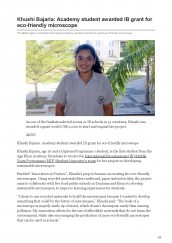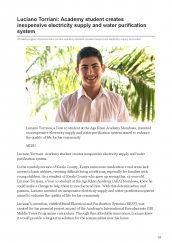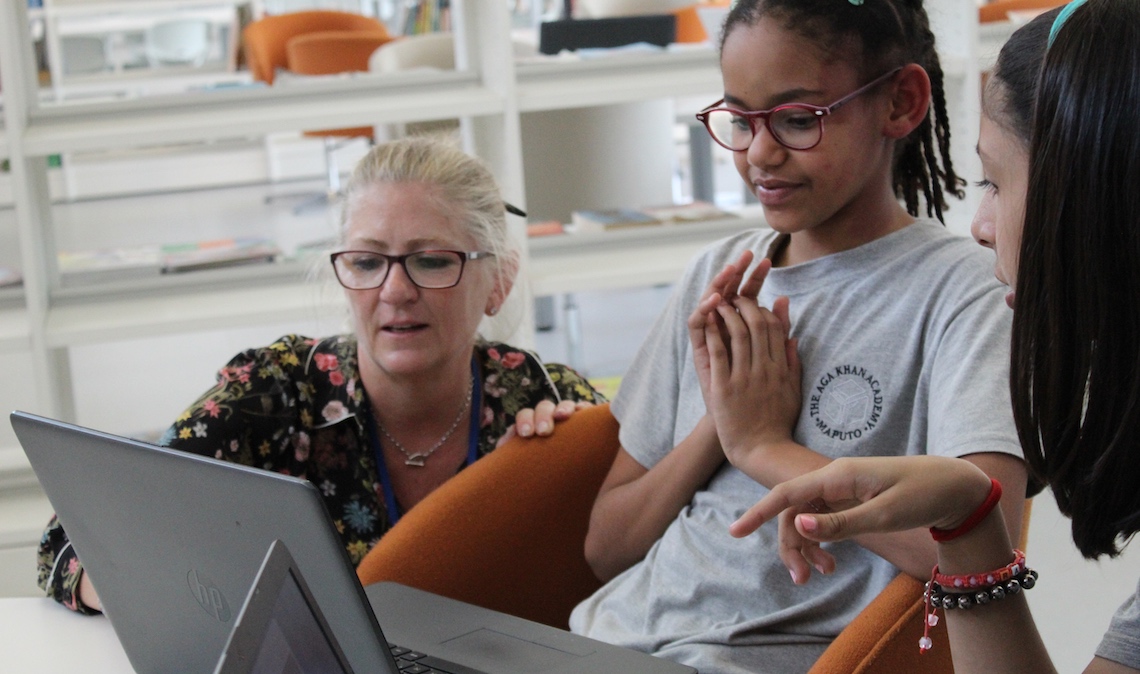International School Library Week - Monday 21st Oct - Friday 25th October
Celebrations kick-started in both Junior and Senior School libraries!
Culture Night - 6pm, Saturday 3rd November 2018
Residential students are celebrating diversity and pluralism through song, dance and theatrical performances at the amphitheatre on Saturday night.
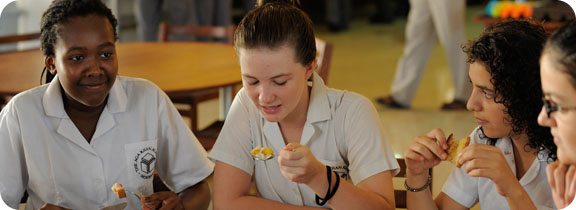
Dining Services
The Academy's dining services provide a varied menu throughout the week. We aim for meals to be nutritious and delicious and for mealtimes to be an important aspect of Academy life. We are committed to providing balanced meals.
See below the lunch menu for the week.
Menu Jan 6.jpg

Rebecca Nichols: Seeing Endless Possibilities for the Future of AKA Maputo
Engaging Students to Become Stake-Holders in the Future of the Academy
For the Middle Years Programme (MYP) Coordinator, Rebecca Nichols, the sky is the limit when envisaging the future of the Aga Khan Academy in Maputo, Mozambique. More importantly, in her eyes, how the Academy keeps growing, shaping and expanding its role in the country and beyond must lie in the hands of students.
“I would like to see our students take responsibility for what our school should become,” she states with excitement, squarely placing the emphasis on student-centred leadership. “I look forward to hearing their ideas for new initiatives, and I look forward to AKA Maputo becoming a school on the African continent from which leaders emerge,” she adds with resolute clarity.
Listening to the details of Rebecca’s background, education, and experience is highly entrancing. Born in the United Kingdom, she spent the early years of her life in Kenya before moving to the Ashanti Goldfields in Ghana for a few years and then back to Great Britain where she obtained her university-level education.
Armed with Master’s Degree in Education from the University of Bath and a post-graduate certificate in Education from the University of Sheffield, Rebecca has taught schools in Portugal, Angola, Kenya, Sweden, Spain, Italy and Hong Kong. In addition, she has worked as an International Baccalaureate (IB) Diploma examiner, an MYP workshop leader and an independent educational consultant for schools in various parts of the world. She is currently pursuing a Doctorate Degree in Education. A British citizen, Rebecca says of her background, I think of myself as a transcultural, rather than someone who identifies particularly with the UK.”
The Academy’s IB Programme is rich in Curricular Strands of ethics, pluralism, economics for development, cultures, governance, and civil society. These play a vital role in Rebecca’s teaching as she incorporates them in her instruction.
“I teach English language and literature and am always able to explore texts and language through the lens of the IB Programme’s Curricular strands,” she notes. “Currently, some of my grade 6 and grade 7 students and are studying Shakespeare’s ‘The Tempest,” and we have explored the themes of governance and civil society in the play.”
Mutual respect and mutual trust between students and also between students and teachers are of paramount value for a thriving classroom. How does Rebecca ensure that this environment exists in her classroom?
“By listening to one another. By supporting one another. By helping one another reach their potential.”
Recognising the importance the Academy attaches to incorporating pluralism and the one-family feeling in the school, Rebecca states of the teachers, “We do a lot of work on team- building activities and also try to engage our students in undertakings that will enable them to develop a sense of community, a sense of family.”
Students, too, participate in this responsibility of developing a sense of belonging. “Our students have set up an after-school programme called “Teen Talks” that enables them to discuss their feelings, experiences and, concerns,” Rebecca says. “Their openness to one another ensures that a climate of pluralism flourishes within the Academy.”
Although Rebecca values her students and works hard to educate them, she feels an excellent education must involve parents. “Any outstanding education must involve three parties; the students, the parents/guardians and the teachers,” Rebecca is quick to note. “I communicate a lot with parents through monthly coffee mornings, emails and events to which parents are invited. I especially look forward to the parent-teacher conferences.”
Radiating ambition for her students to become independent thinkers, even while working in groups, Rebecca designs projects that foster independent thinking skills.
“I create exciting, relevant units of work that expose them to a range of language and literature from a variety of contexts,” she states. I encourage them to be creative, to work independently, in pairs and as part of a group. I provide detailed feedback and expect students to be able to provide meaningful feedback to one another,” she pauses. And then continues, “I encourage them to take risks, to read widely and to learn about the world beyond our campus fences. I encourage them to try things they have never done before.”
Cherishing her time at the Academy, Rebecca feels the experience she is acquiring will continue to resonate with her throughout her life. “Working at the Academy has enabled me to become a more effective multitasker who is willing and able to take on a wide variety of roles that support teaching and learning,” she muses. “I believe that this is an exciting time for the Academy and look forward to being part of the journey.”
Save the date
Last day of school - 19 dec.Classes will finish at 12 noon.
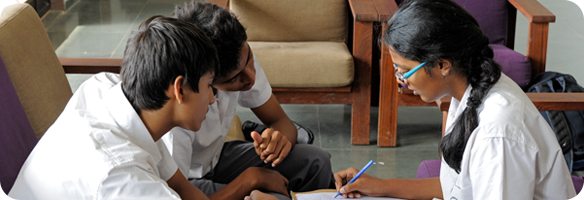
Application Forms
Application forms can be completed online using the links below or via the downloadable forms. Forms completed in hard copy should be either posted or scanned and emailed to the admissions office at the earliest opportunity. Applications should include the following:
- completed application form
- copies of the applicant’s last two grade reports
- a copy of the applicant’s birth certificate or passport
- a copy of Aadhaar card
- evidence of vaccination (Junior School)
- two passport-sized photographs
- application fee (non-refundable): INR 3,000.
*Please note that a completed financial aid form must be submitted together with the application form in order to apply for a bursary.
Address
Admissions Office
The Aga Khan Academy Hyderabad
Survey No: 1/1, Hardware Park
Maheshwaram Mandal, R.R. District
Hyderabad 501 510
Telangana, India
+91-40-66291300
Email: admissions.hyderabad@agakhanacademies.org
Online application forms
To access the online application service, please click on one of the options below.
Downloadable application forms
Click on the links below to download the application forms:
IB Primary Years Programme application form_2025-26.pdf

University Counselling
The Aga Khan Academy Dhaka’s counselling programme offers students a vast array of resources designed to help them find good matches between themselves and universities/colleges. These resources include a dynamic and well-resourced college counsellor, a wealth of printed, video and online tools, and a series of informational workshops and seminars on topics central to the college discovery process.
Our counsellors engage students in individual conferences designed to help students reach a greater awareness of who they are. Armed with a well-articulated sense of self, students are prepared to find universities or colleges that are the best fit. Ours is a student-centred approach, and we believe that the likelihood of satisfaction with their choices is enhanced when students are empowered to 'own' the process. Also key to success is good communication among all parties: students, parents and college counsellors. While outcomes are important, it is the process of self-discovery and college discovery on which our programme focuses. For information, reach out to our University Counsellor, Ms Nusrat Sharmin at nusrat.sharmin@agakhanacademies.org.
Click here to find the 2024-25 school profile.
Click here to download a copy of the latest handbook.
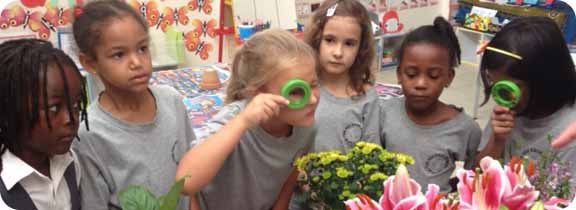
Student Leadership
The Academies’ programmes aim to develop students who are ethical, public-minded and who possess a pluralistic outlook. Both curricular and co-curricular activities work to educate effective home-grown leaders who are actively engaged in their local communities and are aware of the implications of their actions. Through their participation in co-curricular clubs, students are encouraged to take on leadership positions in a variety of different forms (e.g. house leaders, student council, team captains, dorm duties).
Not only do these opportunities provide an environment to explore and enhance skills such as cooperation and problem solving, they also enable students to set personal goals and challenge themselves.
Student leadership activities vary from community service opportunities to sports and expressive arts. Students have opportunities to participate in the Student Representative Council and other similar activities.
Leadership activities instil in participants a sense of community ownership, creativity and a collaborative spirit, and prepares them for a lifetime of active engagement and leadership.
"The conviction that home-grown intellectual leadership of exceptional calibre is the best driver of a society’s destiny, underpins the Ismaili Imamat’s endeavour to create catalytic centres of educational excellence."
